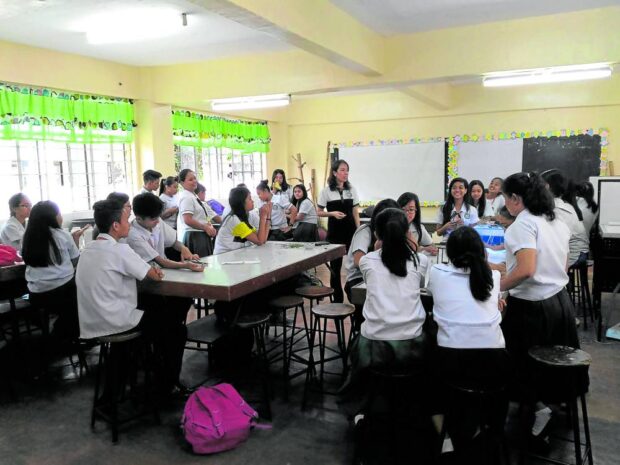
EXTRA TASKS One of the first concerns raised at Edcom 2 is the heavy multitasking required of public school teachers. Based on initial findings, teachers today can have as many as 50 extra tasks outside their primary role. —INQUIRER FILE PHOTO
The Alliance of Concerned Teachers (ACT) asked the Department of Education (DepEd) on Wednesday to upgrade its guidelines on the pay of teachers who opt to work in July even before the opening of the new School Year 2024-2025.
ACT Chair Vladimer Quetua urged the DepEd to grant participating teachers full pay because their workload and daily expenses are the same as ordinary school days, even if they only work for a few hours.
The preschool opening activities include the National Learning Camps, Palarong Pambansa, student enrollment and the “Brigada Eskwela” program.
Quetua explained that their demand was connected to the recently issued Department Order (DO) No. 003, series of 2024, which sets gradual adjustments in the school calendar in preparation for returning to the old academic schedule in which classes start in June and end in March.
Under DepEd’s DO 3, teachers will enjoy a 30-day break from June 1 to 30, which means they cannot be compelled to do work. But after that, they can—of their own volition—take part in school activities.
READ: Teachers also need rest after 10 months of work, group tells DepEd
Quetua said that public school teachers willingly join such activities, usually done in July, but they are not given full pay because they can only work for a few hours a day.
Normally, teachers would have to render eight hours of work during these activities to get full pay.
“The teachers are on the losing side under this kind of policy because even if we only work for a few hours, we bear the same exhaustive feeling and our expenses are the same as that of a whole day of work,” Quetua told the Inquirer in a phone interview.
The ACT will write to the DepEd as soon as possible to raise this concern and also seek another dialogue on the matter, he added.
Quetua said his group would also urge the DepEd during the proposed dialogue to come up with guidelines on the changes they were seeking about the service credits for teachers.
The DepEd earlier cited several reasons for returning to the old school calendar, including complaints about extreme heat that students, teachers, and school staff members had to endure, especially during the summer months of April and May.
But the agency should still take into consideration the “continuity and conduciveness of the learning environment,” according to the advocacy group Philippine Business for Education (PBEd).
“The decision to revert to the old academic calendar should not be seen as a stopgap measure to address the underlying issues that make the existing school calendar unbearable,” it said in a statement.
The PBEd also suggested that the government ensure that classrooms would be able to withstand extreme weather conditions.